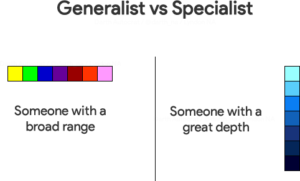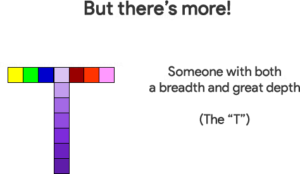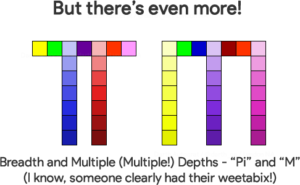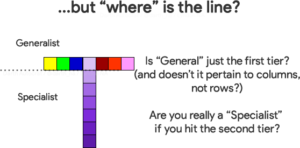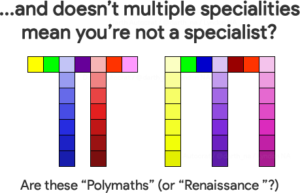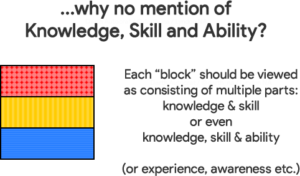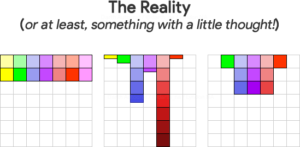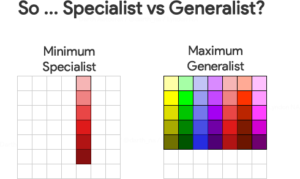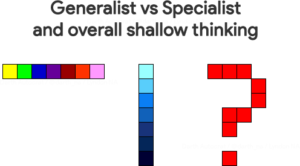Sure, here’s the text with an active hyperlink included:
You don’t need to know programming, UX, web performance, etc. to be good at SEO.
Aha!
But how many truly excellent SEOs do you know who only know SEO and nothing else?
What makes SEOs excellent is that they know pretty much a bunch of other disciplines, and that makes such people good at SEO.
Higher level SEO is never just SEO, it’s always a mix + wisdom.
There’s an ongoing debate about the value of being a generalist versus a specialist.
The conventional wisdom suggests that generalists possess a broad range of knowledge across multiple subjects, while specialists dive deeply into one particular area.
However, this binary classification has evolved into a more nuanced understanding, symbolized by the “T” shape, which represents professionals who have both breadth and depth in their skill set.
Yet, the conversation doesn’t end there.
Other shapes like “Pi” and “M” have been introduced to describe individuals who generalize in many areas but specialize in a few.
These attempts at categorization have been met with skepticism, particularly due to the ambiguity in defining the threshold between generalism and specialism.
The term “polymath” is traditionally used to describe someone with deep knowledge in multiple fields, but there’s a suggestion to coin a new term, “polyist,” for those with multiple specialisms in related areas.
A critical distinction that’s often overlooked is the difference between knowledge and skill or ability.
It’s possible to have knowledge of a subject without the skill to execute it.
As one gains experience in a particular field, they naturally acquire some knowledge of related areas, leading to a more complex and realistic representation of their expertise.
This could be visualized as shapes with varying widths and heights, rather than neat “T” or “Pi” shapes.
To clarify, specialists are expected to reach a certain level of expertise in their field.
Generalists should have a broad knowledge base across various fields, though the exact number of fields and the depth of knowledge required are unclear.
If a generalist reaches a high level of expertise in several areas, they could be considered a “polyist,” a term that suggests a blend of generalism and specialism.
The discussion around these terms is less about the labels themselves and more about moving beyond simplistic and limited views of professional capabilities.
Being a generalist doesn’t imply a lack of knowledge or skill; it simply means one is not a specialist.
